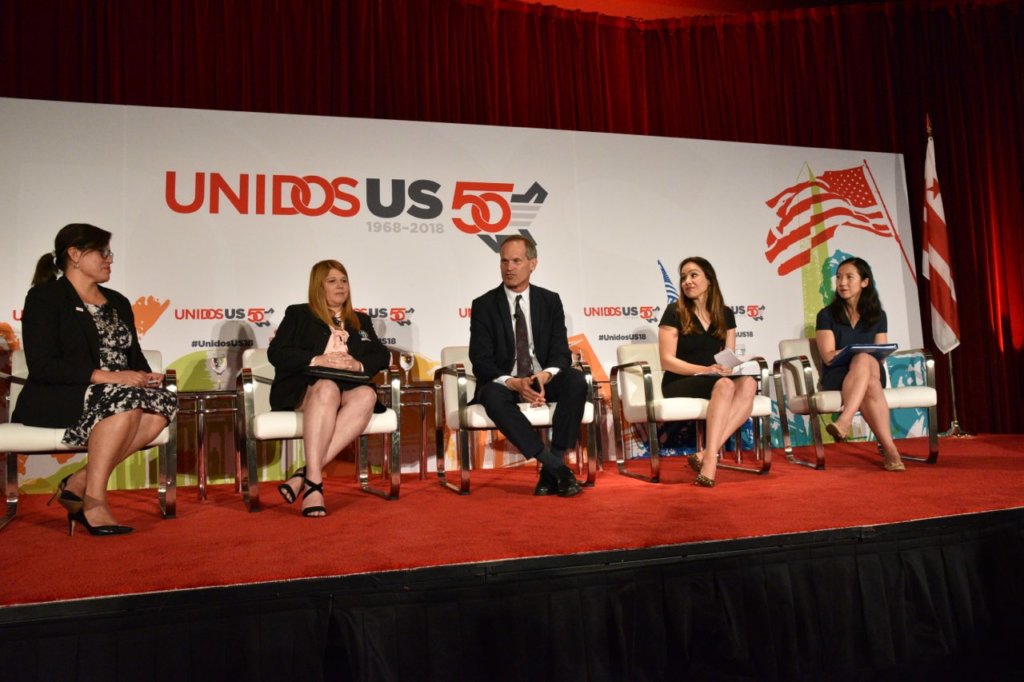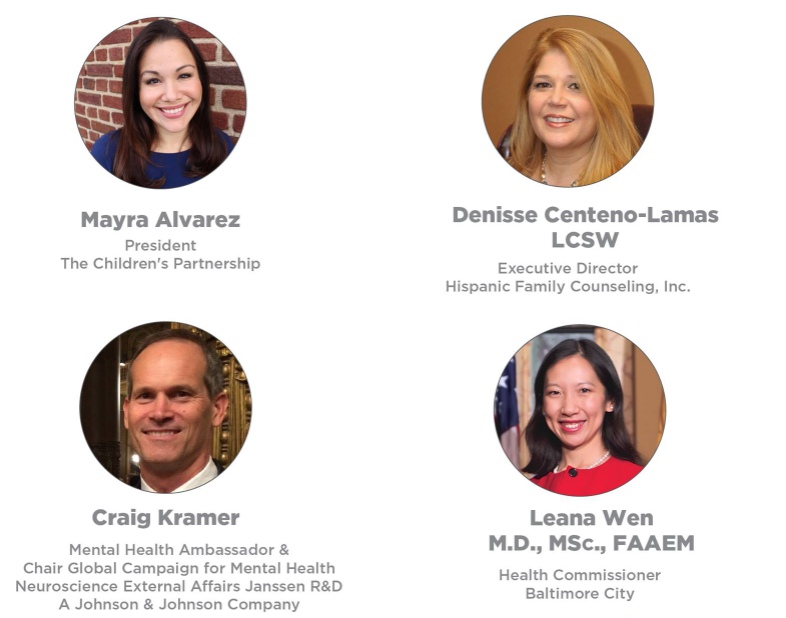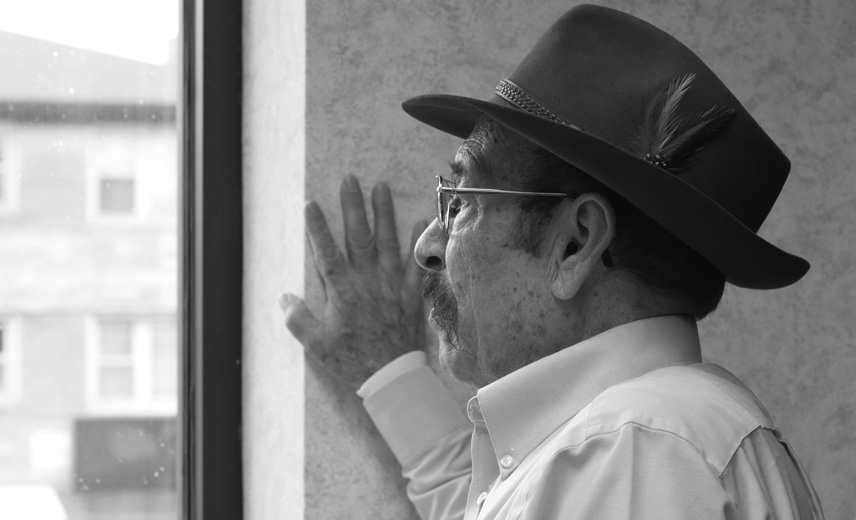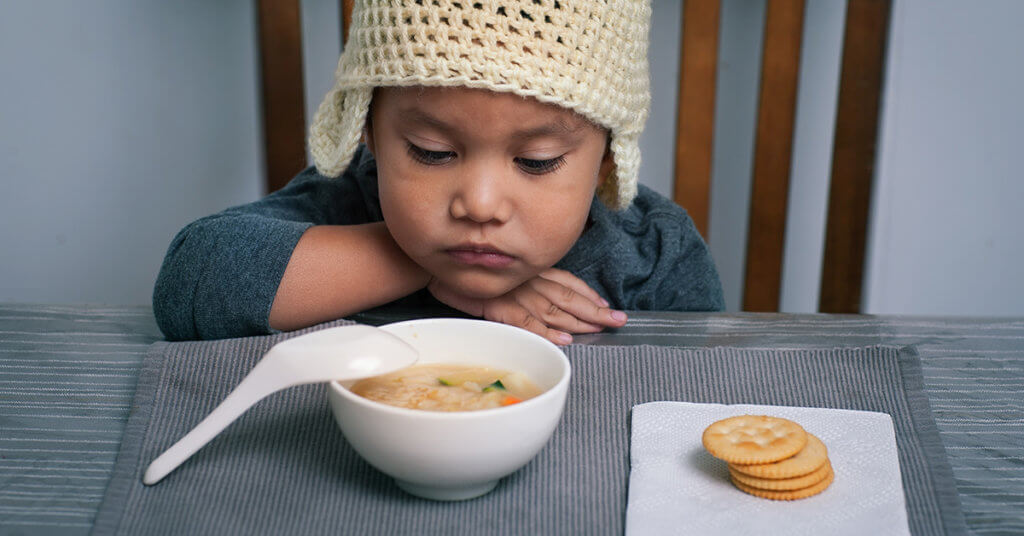‘Racism is a public health issue’
Trump’s America, mental health, and why now is not the time for stigma.
“Who here has lived with a mental illness?” Craig Kramer asked a packed crowd of 300. “Or who here is affected by mental illness?” He paused for a moment. “Now look around.”
Everyone in the room had a hand raised.
Keep up with the latest from UnidosUS
Sign up for the weekly UnidosUS Action Network newsletter delivered every Thursday.

Even though so many of us struggle with maintaining our mental health, far too few are willing to talk about it the way they would their physical health. It seems minor, but it only perpetuates the stigma and shame associated with mental illness and seeking help for mental health.
Kramer is a mental health ambassador and Chair of the Global Campaign for Mental Health at Janssen Research and Development, and was part of a panel at the 2018 UnidosUS Annual Conference, titled “Healthy Minds, Healthy Communities: Let’s Talk About Mental and Emotional Well-Being.”

The panel’s goal was to have a real and honest conversation about mental health in the United States, hoping to break long-held beliefs and biases. As we can see in the news every day, this isn’t the time for stigma. There are real, devastating, and sometimes lifelong consequences to the emotional turmoil produced by the political climate today. And it affects everyone in the country, not just Latinos.
The full session was streamed via Facebook Live. Watch it here:
A TOUGH TIME FOR ALL OF US
The past two years have been a challenging time to live through in the United States. The Trump campaign and presidency themselves were founded on spreading racist rhetoric, and also came with a rise in reports of bullying and harassment based on race. All of these factors have impacted the mental health of millions of Americans.
As president of the Children’s Partnership, Mayra Alvarez has her finger on the pulse of America’s children, and she’s seen the difference Trump has made. “Since the beginning of the Trump administration, anti-immigrant rhetoric has instilled a deep and growing fear, threatening the well-being of children,” she said.
The panel discussed the combination of policy changes and traumatic images on television impacting children’s mental health, which can have long-term repercussions, including heart disease and other chronic illnesses. If untreated, this can affect their future ability to work, keep a job, and generally live happily and healthily.
If anything good can come out of the Trump administration, it’s that the importance of mental illness is finally getting the attention it didn’t have for far too long. “Anxiety is coming at us from every direction,” Alvarez said. “We’re inundated with negative comments,” so their effects are impossible to ignore.
‘RACISM IS A PUBLIC HEALTH ISSUE’
The latest manifestation of Trump damaging our mental health is the separation of families on the U.S.-Mexico border.
“Children in immigrant families are enduring toxic stress, anxiety, and other longstanding negative health impacts due to unjust policies that separate families and traumatize children,” Alvarez said.
Dr. Leana Wen, the health commissioner for Baltimore City, asserted that racism is a public health issue, and we have to resist those saying that health professionals have no place in advocating for social issues.
“They want [doctors] to stay silent about family separation even though it causes stress levels so high that it literally changes their DNA,” Wen said. The trauma of being separated from parents can lead to issues that impact the rest of their lives.
Speaking at UnidosUS to fellow advocates and activists. We are the ones we have been waiting for. We must do what we can now, including to stop inhumane policies of family separation and to fight for healthcare as a fundamental right.
— Leana Wen, M.D. (@DrLeanaWen) July 8, 2018
The stress is affecting everybody, not just the families being separated. Even if you aren’t directly affected, or affected out of empathy, some Americans are left wondering what might happen to them based on what’s happening to others.
“Families are holding back on going to the park, school, the grocery store, because they’re scared of what happens because immigration enforcement is on properties they shouldn’t be,” said Denisse Centeno-Lamas, executive director of Hispanic Family Counseling.
The moderator of the panel, UnidosUS Deputy Vice President of Health Rita Carreón, pointed out just how damaging it can be to separate families during difficult times. “Parents can be the most powerful force in preventing or reversing the impact of toxic stress on kids,” so separating kids from their parents effectively cuts them off from one of their few sources of alleviating trauma.
WHAT CAN WE DO?
Despite the tough challenges we’re up against, young Latinxs show great resilience in the face of difficulty. So what can we do to make mental health more commonly accepted?
“We prioritize physical health,” Wen said. “We need to consciously prioritize mental health just as much.”
Centeno-Lamas wants mental health to be considered as seriously as any physical issue, and not as a symbol of weakness. “The best way to destigmatize is to talk about it,” she said. “Tell our stories, so it doesn’t just seem to happen to other people, but in our families and our own lives.”
By John Marth, UnidosUS Senior Content Specialist
RELATED CONTENT



